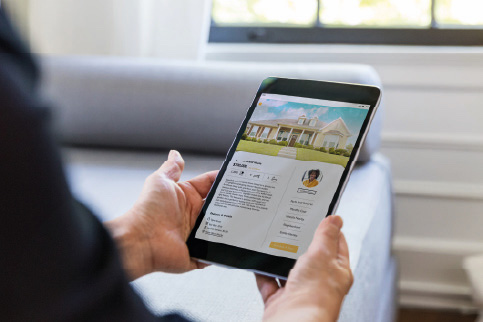

You’ll sign plenty of documents when buying a home. But few are as important as the deed of conveyance. That’s because this is the one that officially transfers ownership of a home from the seller to you, the buyer.
In real estate, the act of transferring property – such as a house or condominium unit – from one party to another is known as conveyance. A deed of conveyance transfers legal property rights from the seller to the buyer. It’s an important legal document in the home buying process.
Both the sellers – known in legal terms as the grantors – and the buyers – known as the grantees – must sign the deed of conveyance.
You might hear the terms “sales deed” and “deed of conveyance” used interchangeably. They’re not quite the same, though.
A deed of conveyance is a broader term that includes several types of ways in which people can transfer the legal title or ownership of a property to another person. For instance, conveyance deeds can transfer title through a gift from one person to another or through an exchange of properties.
A sales deed, though, is the particular conveyance deed that sellers and buyers use to transfer ownership in a property through a real estate sale. When you buy a home, then, you’ll sign a type of conveyance deed known as a sales deed, which moves the legal title of a home from the sellers to you.
The day you receive your deed of reconveyance is one for celebration: This deed is a legal document indicating the transfer of a property’s title from a lender to a former borrower. Basically, it’s the document you receive from your lender after paying off your mortgage loan in full. It means you no longer owe any mortgage debt on your home.
A deed of conveyance is important because it officially marks the transfer of the home you are buying from the sellers to you. Before you receive this deed, a title insurance company will review the home you are buying for any liens or other encumbrances.
This is an important protection for buyers: You don’t want to buy a home only to learn that the former owners didn’t pay their property taxes. If this happens, your local county might have a lien, or ownership stake, in your home. You’ll then either have to pay off what the former owners owed or work with a lawyer to remove the lien, also an expensive process.
The deed of conveyance also provides written, legal evidence that the title of your home has been transferred from your home’s former owners to you. Finally, it contains key information about your home – such as its property lines – and the basic information about you and the sellers.
A deed of conveyance typically includes the names of both the buyers and sellers and their addresses. The deed will also include information about the home being transferred, such as its property lines. The results of a title search – showing that the new owners have clean title – will also be included in the deed.
Buyers will receive a copy of the sales deed during the home closing process. The attorney representing the sellers will often prepare and register this deed. Once the buyers finish paying off their mortgage loan, their lenders will send them a deed of reconveyance, a document signifying that the title of the property has now been transferred from the lender to the owners.
Signing a deed of conveyance, or sales deed, is an important part of buying a home and closing your mortgage loan. This document officially transfers a property from the sellers to you. It’s important, then, to understand what these deeds mean. But this deed is far from the only paper you’ll sign during the home buying and mortgage lending processes.


 tablet in both hands showing a house listing." />
tablet in both hands showing a house listing." />









LMB Mortgage Services, Inc., (dba Quicken Loans), is not acting as a lender or broker. The information provided by you to Quicken Loans is not an application for a mortgage loan, nor is it used to pre-qualify you with any lender. If you are contacted by a lender or broker advertising within our network, your quoted rate may be higher depending on your property location, credit score, loan-to-value ratio, debt-to-income ratio, and/or other factors. Quicken Loans does not offer its matching services in all states. This loan may not be available for all credit types, and not all service providers in the Quicken Loans network offer this or other products with interest-only options. The information that we provide is from companies which Quicken Loans and its partners may receive compensation. This compensation may influence the selection, appearance, and order of appearance on this site. The information provided by Quicken Loans does not include all financial services companies or all of their available product and service offerings. Article content appears via license from original author or content owner, including Rocket Mortgage.
Note: Actions on this website are recorded for quality assurance or training purposes. Input of data constitutes consent.
Quicken Loans is a registered trademark of Rocket Mortgage, LLC, used under license by LMB Mortgage Services, Inc.
LMB Mortgage Services, Inc. | NMLS #167283
4859 W Slauson Ave #405 Los Angeles, CA 90056